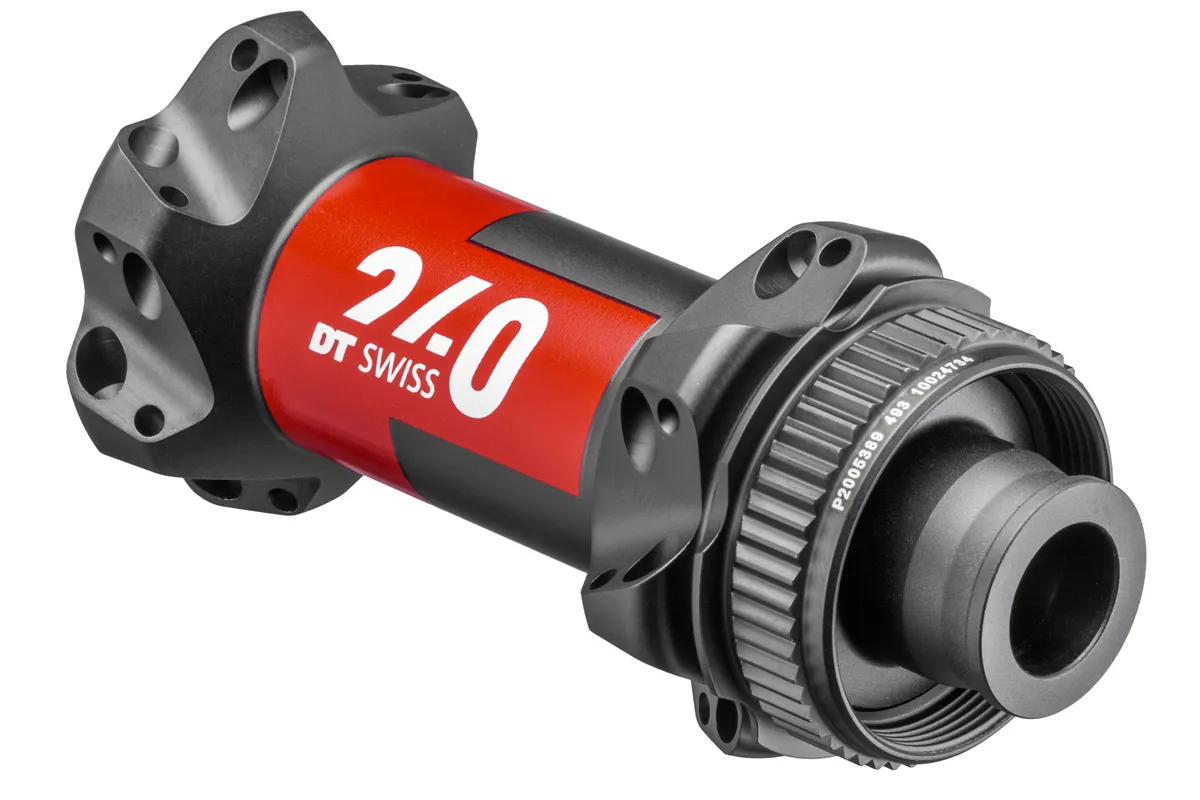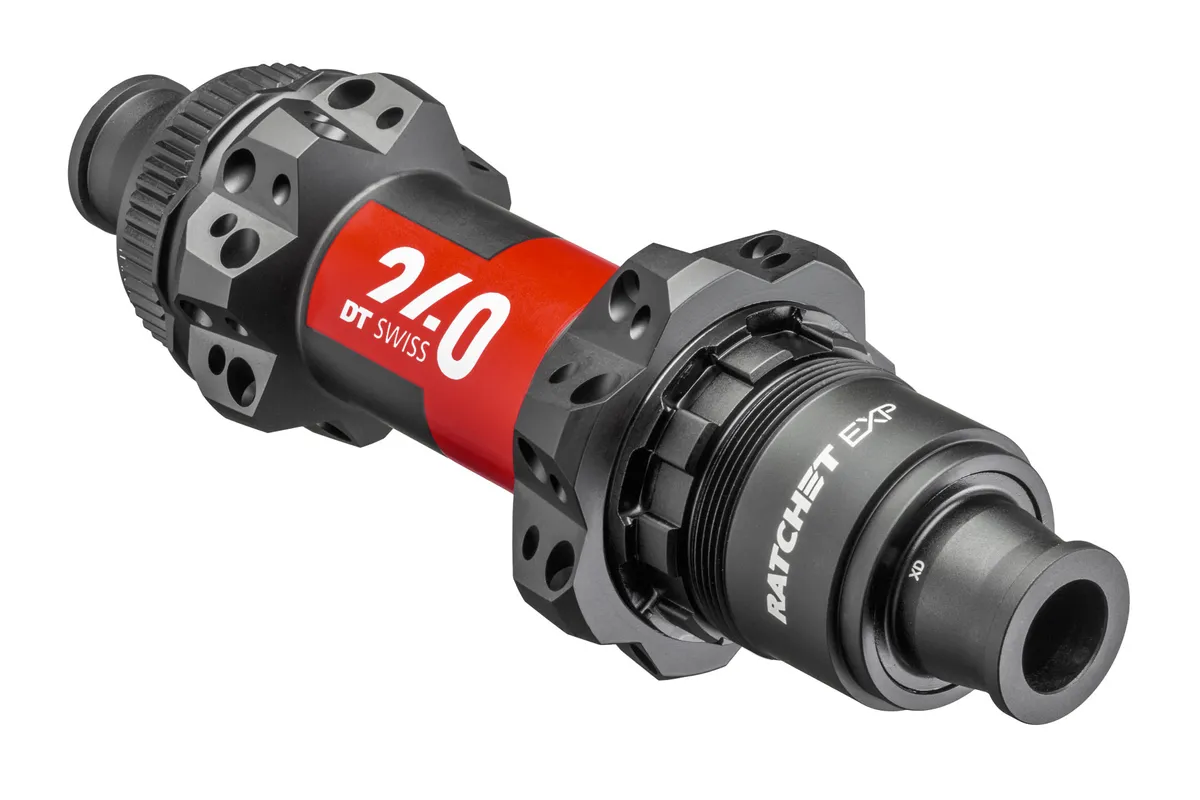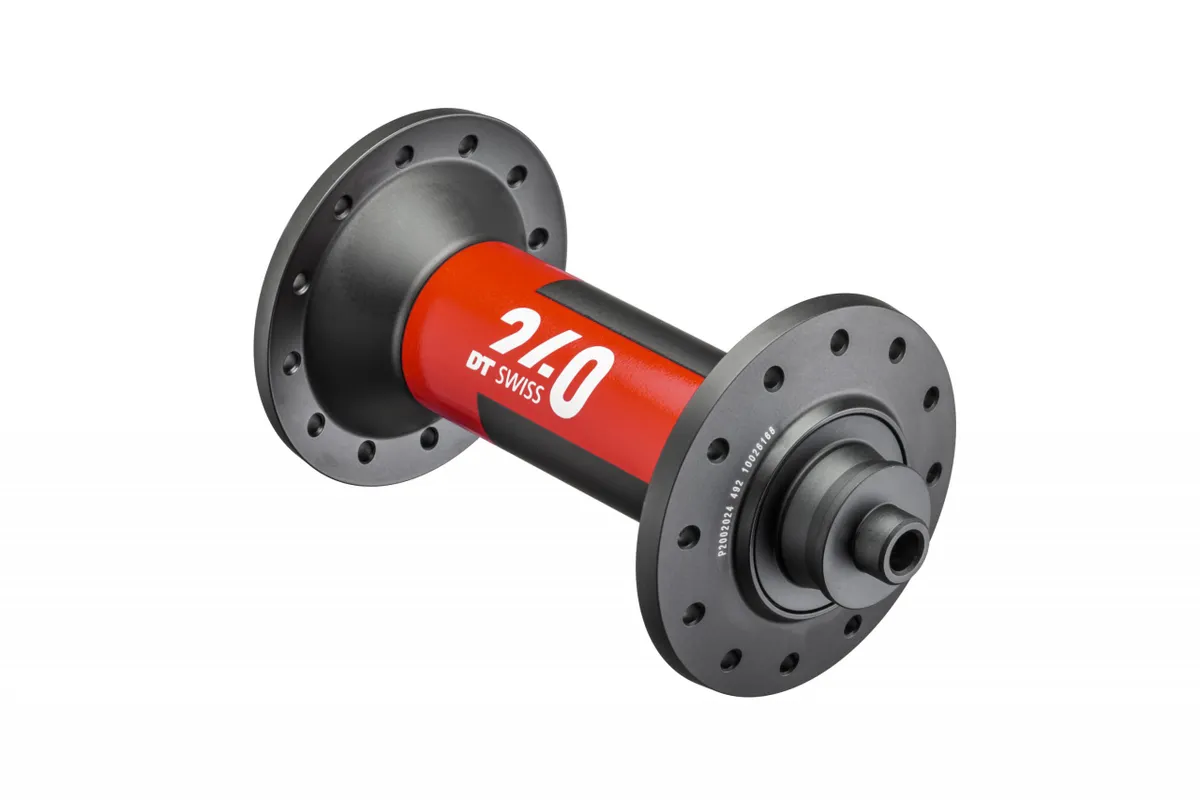DT Swiss has updated its benchmark 240 hub, bringing it in line with the lightweight 180 that was launched last year.
The 240 has long been a byword for reliability and it appears in numerous high-end wheelsets, as well as being a top choice for wheelbuilders the world over.
New DT Swiss 240: lighter, tougher and easier to maintain
The new 240 rear hub gets the same Ratchet EXP freehub design as the 180, an evolution of DT Swiss’s proven star ratchet design.
Most freehubs use sprung pawls that engage with ratchet teeth to transfer driving force one way, and freewheel the other.
DT Swiss’s star ratchet employs two stepped rings that are pushed together by springs. The steps are oriented in order to transmit drive in one direction, and slide over one another in the other direction to freewheel.
It’s an exceptionally elegant mechanism that works really well and, in older DT Swiss hubs, two springs are used to push the ratchet rings against one another.
Ratchet EXP simplifies the design by eliminating one of the springs and combining one of the ratchet rings with the ring that threads in to the hub body.
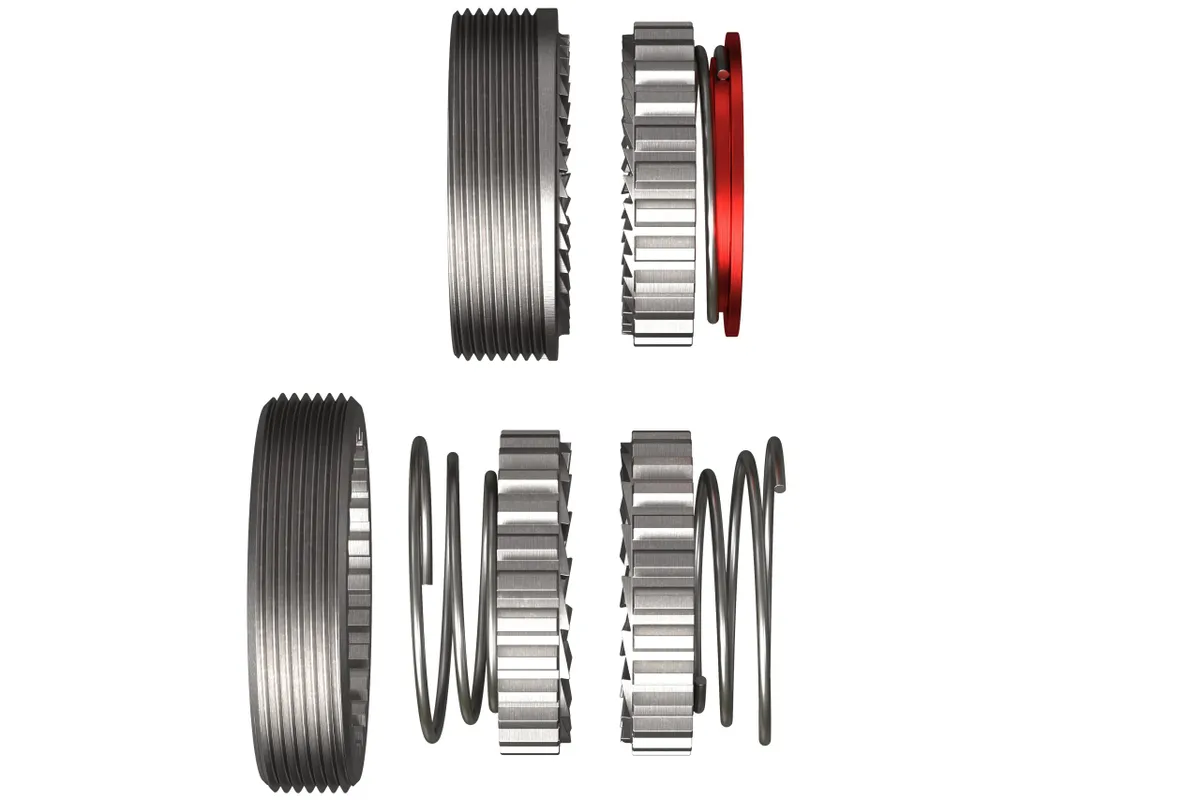
According to DT Swiss, the new design “results in faster full engagement and eventually reduces wear”.
In previous generations, the driveside axle bearing sat next to the threaded insert, but in the new 240 (and the current 180) the bearing sits inside the threaded ring, allowing wider bearing spacing, and hence greater axle stiffness (a claimed 15 per cent) and reduced bearing wear.
As a result of all this, the new rear hubs are claimed to be lighter and more durable.
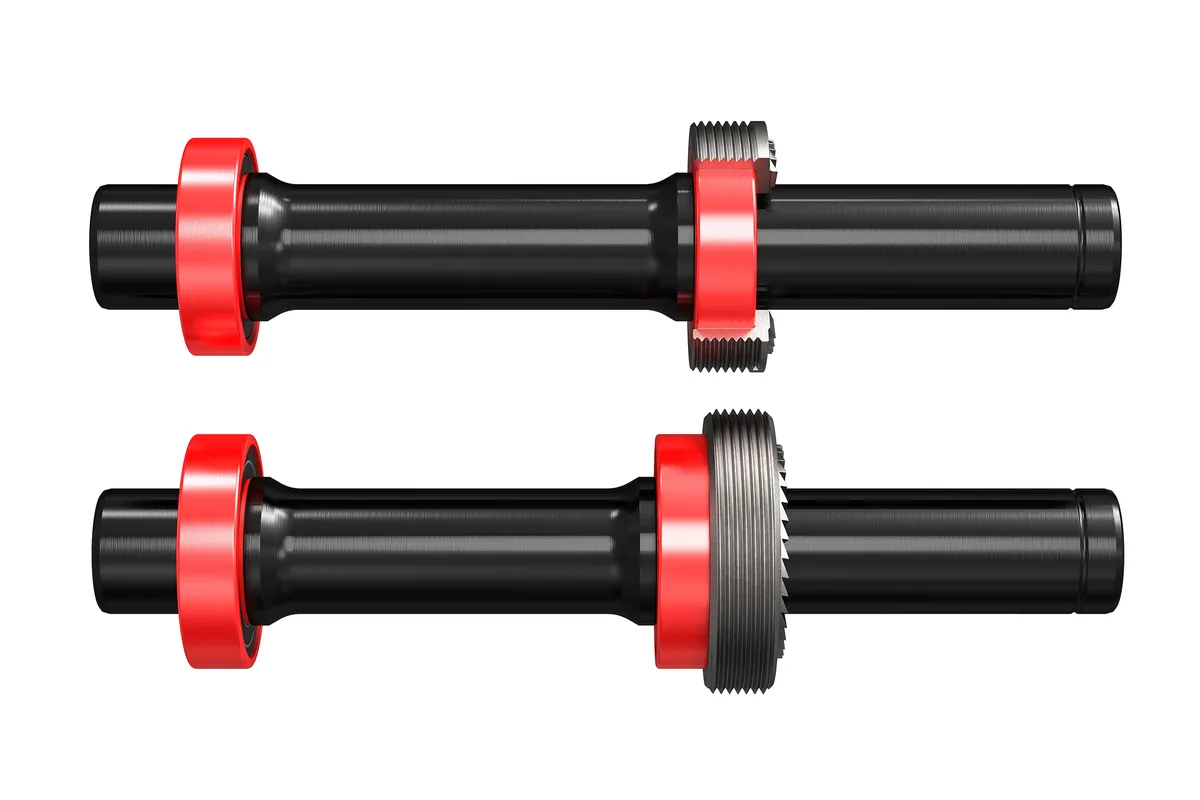
On the subject of ratchets, DT has gone to some lengths to explain its choice of 36 points of engagement for the 240s, i.e. 10-degree engagement.
This is particularly relevant to mountain bikes, where riders typically favour fast engagement because it makes technical riding easier.
However, as DT Swiss notes, depending on your suspension geometry you’re generally more likely to experience pedal kickback on a bike with a faster engaging freehub.
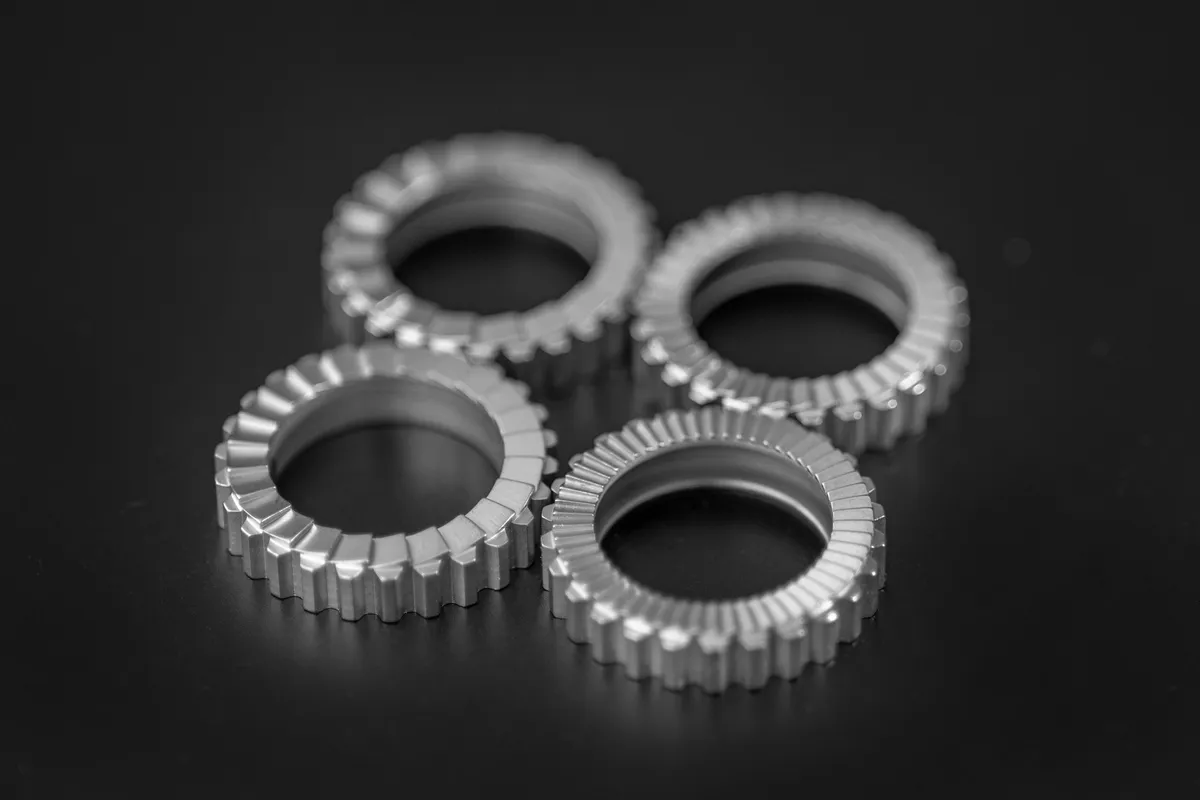
As a result, the brand reckons 36 points is the best option for most riders, but a 54 point ratchet is available as an alternative for those that want it.
While the lightweight 180 hub is only offered in a straight-pull spoke configuration, the 240 comes in both standard (J-bend) and straight-pull variants, with road and mountain bike versions of both. Depending on version, hole counts range from 20 to 32.
The new 240s support all major axle and freehub standards and, in their lightest configuration (road, straight-pull), they’re claimed to weigh 102g for the front and 191g for the rear.
Maintenance should be easier on the new 240s too. While DT Swiss has long allowed for tool-free disassembly, previous hubs had smooth, straight end caps that could be tricky to remove on infrequently serviced hubs.
The new 240s feature a curiously named “incorporated notch”, which is really a tapered end cap with a lip on the end of it that gives you something to hang off of when you’re pulling the hubs apart. It’s a small detail, but anyone maintaining these hubs will appreciate it.
The new 240 hubs are priced from £159.99 / $220.90 / €149.90 for the front and £314.99 / $433.90 / €293.90 for the rear, with the MTB Boost version costing £169.99 / £334.99 in the UK.
They will be available in July.
